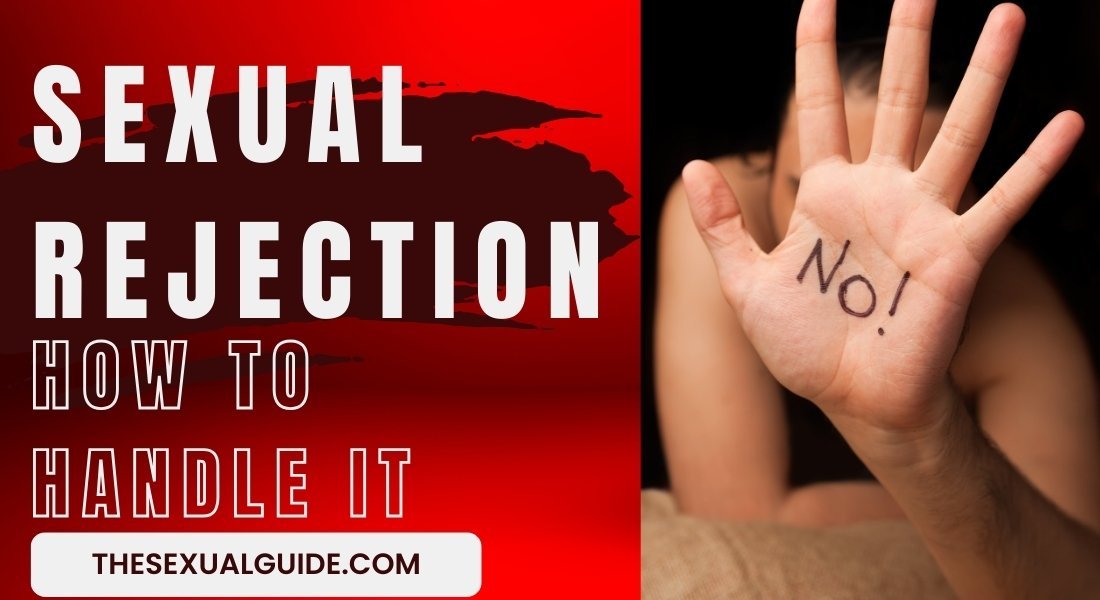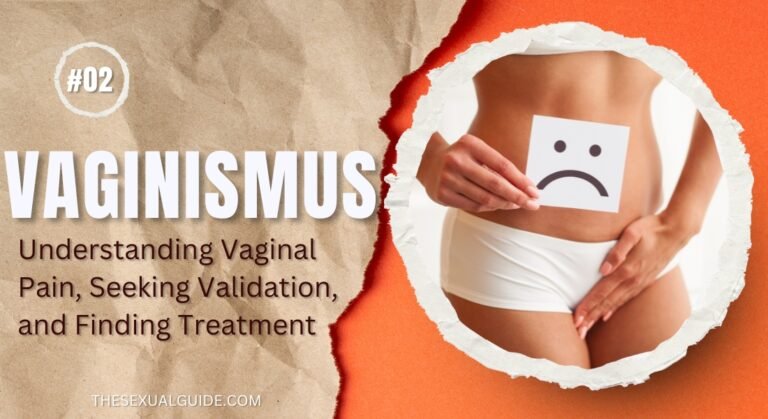Experiencing sexual rejection within a relationship can be challenging, often leading to feelings of hurt, confusion, and diminished self-esteem.
However, understanding and navigating these situations with empathy and effective communication can strengthen the bond between partners.
This article offers insights and practical tips on handling sexual rejection, supported by expert opinions and research findings.
Understanding Sexual Rejection
Sexual rejection occurs when one partner declines the other’s initiation of sexual activity.
It’s essential to recognize that such refusals can stem from various factors, including stress, health issues, emotional concerns, or differences in sexual desire.
Understanding the root causes can help in addressing the situation constructively.
The Emotional Impact of Sexual Rejection
Repeated sexual rejection can have significant emotional effects:
- Decreased Self-Esteem: Consistent rejection may lead individuals to question their attractiveness or worth, resulting in lowered self-confidence.
- Emotional Distress: Feelings of sadness, frustration, or resentment can arise, potentially leading to emotional distance between partners.
- Reduced Sexual Interest: Over time, the initiating partner may experience a decline in sexual desire due to fear of further rejection.
A study highlighted by the British Psychological Society found that dissatisfaction from sexual rejection can linger longer than the pleasure derived from sexual acceptance, underscoring the profound impact rejection can have on individuals.
Tips for Navigating Sexual Rejection
1. Open and Honest Communication
Initiate a calm and non-judgmental conversation with your partner about your feelings and concerns. Expressing emotions openly can foster understanding and pave the way for mutual solutions.
2. Practice Empathy
Consider your partner’s perspective and understand that their refusal may not be a reflection of their feelings toward you but could be influenced by external factors like stress or health issues.
3. Explore Alternative Forms of Intimacy
Physical intimacy isn’t limited to sexual activity. Engaging in affectionate gestures such as holding hands, cuddling, or sharing massages can maintain closeness and strengthen the emotional bond.
4. Seek Professional Support
If sexual rejection persists and affects the relationship’s quality, consulting a couples therapist or sex therapist can provide a neutral space to explore underlying issues and develop effective strategies.
5. Focus on Self-Care
Engage in activities that boost your self-esteem and overall well-being. Pursuing hobbies, exercising, or spending time with friends can help mitigate the emotional impact of rejection.
Addressing Erectile Dysfunction (ED) and Sexual Rejection
Erectile dysfunction (ED) can be both a cause and a consequence of sexual rejection.
Men experiencing ED may avoid initiating sex due to fear of failure, while partners may feel rejected due to the lack of sexual advances.
Open communication about ED is crucial.
Discussing concerns without assigning blame can lead to mutual understanding and support.
Exploring medical treatments or therapies together can also alleviate the strain ED places on the relationship.
For trusted solutions and more information on managing ED, consider visiting LibidoDepot.
Conclusion
Handling sexual rejection requires patience, empathy, and proactive communication.
By understanding the underlying causes and addressing them collaboratively, couples can navigate these challenges and strengthen their relationship.
Want to learn more? Visit LibidoDepot for trusted solutions.
FAQs: Sexual Rejection; How to Handle It
1. Is it normal to feel hurt or insecure after sexual rejection?
Yes, it’s completely normal. Sexual rejection can trigger feelings of inadequacy, shame, or self-doubt, especially if it occurs in an intimate relationship. Recognizing these emotions without judgment is the first step to processing them in a healthy way.
2. How should I respond when my partner rejects me sexually?
Respond with empathy rather than defensiveness. Try to understand the reason behind the rejection, fatigue, stress, emotional disconnect and initiate a calm, respectful conversation when both of you are in a receptive state.
3. Can repeated sexual rejection damage a relationship?
If not addressed, yes. Ongoing rejection can lead to emotional distance, resentment, or reduced self-esteem. Open communication, reassurance, and exploring underlying issues whether emotional, relational, or medical are crucial.
4. How can I reject someone sexually without hurting their feelings?
Be honest, gentle, and affirming. Acknowledge their desire, express appreciation, and offer an explanation if possible. Emphasize that the rejection isn’t a reflection of their worth, and consider offering non-sexual intimacy to maintain closeness.
References
- How to Deal with Sexual Rejection from Your Partner
- When Your Partner Rejects You Sexually
- Navigating Intimacy: When Your Partner Says No to Sex
- Overcoming Sexual Rejection in Relationships
- How Couples Can Deal With Sexual Rejection Better
- Understanding and Resolving the Hurt from Sexual Rejection






